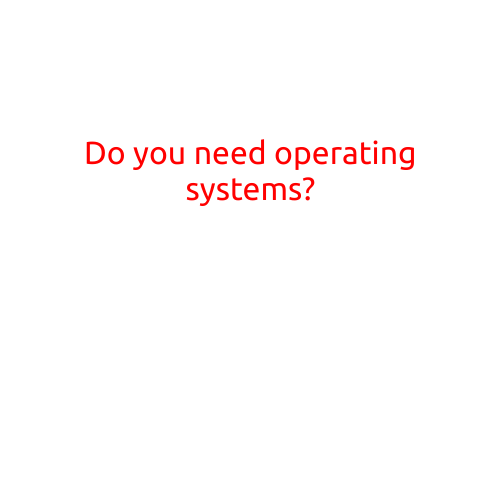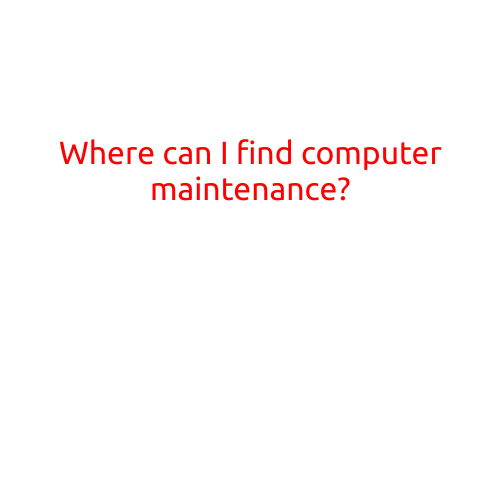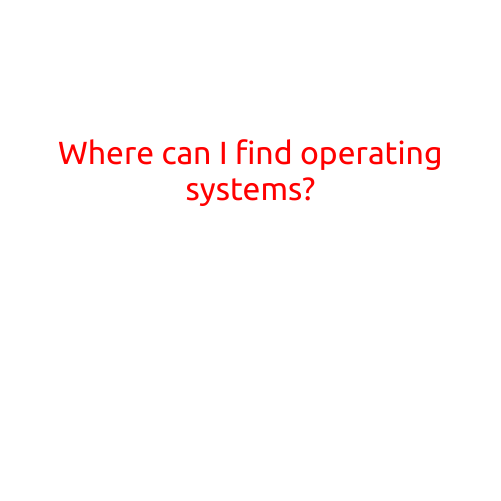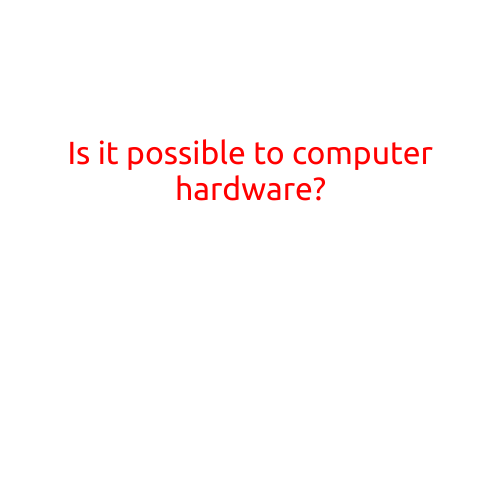
Do You Need Operating Systems?
In today’s digital age, operating systems (OS) have become an integral part of our daily lives. From smartphones to desktop computers, laptops, and even smart home devices, operating systems play a crucial role in managing and controlling the way we interact with our devices. But, do we really need operating systems? Let’s explore the answers.
What is an Operating System?
An operating system is a software that acts as an intermediary between a computer’s hardware and user-level applications. It manages the computer’s resources, such as memory, storage, and processing power, and provides a platform for running various software applications. Popular operating systems include Windows, macOS, Linux, Android, and iOS.
Do You Really Need an Operating System?
In a nutshell, yes, you do need an operating system. Without an OS, your device would be unable to function properly. Here’s why:
- Hardware Management: An OS takes care of managing your device’s hardware components, such as memory, storage, and processing power. It ensures that these components work together seamlessly, allowing you to run various applications.
- Application Execution: An OS provides a platform for running applications, such as web browsers, productivity software, and games. It manages the allocation of system resources, ensuring that each application runs smoothly and efficiently.
- Security: An OS provides a layer of security by controlling access to your device’s hardware and software resources. It helps protect against malware, viruses, and other potential threats.
- User Interface: An OS provides a user-friendly interface, making it easy to interact with your device. You can customize your OS by adding apps, widgets, and themes to personalize your experience.
What Happens Without an Operating System?
Imagine a world without operating systems! Without an OS, your device would be nothing more than a collection of hardware components, unable to function or interact with each other. You wouldn’t be able to:
- Run applications
- Manage your device’s resources
- Access files and data
- Customize your interface
- Enjoy security features
Conclusion
In conclusion, operating systems play a vital role in managing and controlling our devices. Without an OS, our devices would be unable to function properly, making it impossible to run applications, manage resources, or even access files and data. So, yes, you do need an operating system to get the most out of your device and to enjoy the convenience and security of modern technology.
Whether you’re a casual user or a tech enthusiast, it’s clear that operating systems are an essential part of our digital lives. So, the next time you boot up your device, take a moment to appreciate the hard work that your operating system does behind the scenes to make your experience smooth, secure, and enjoyable.





